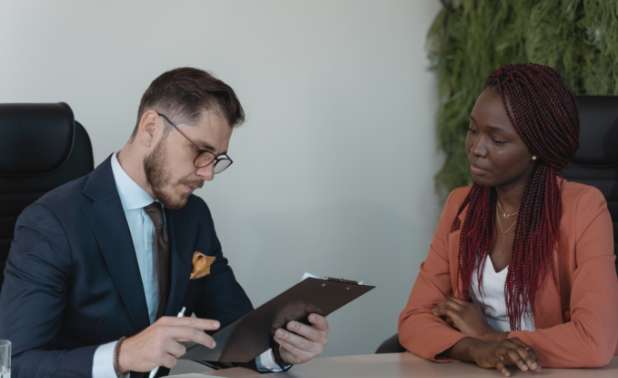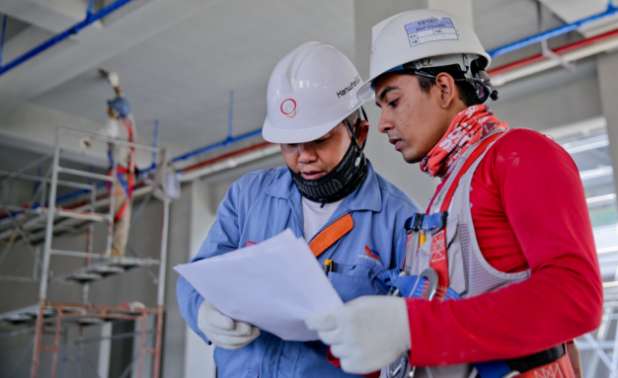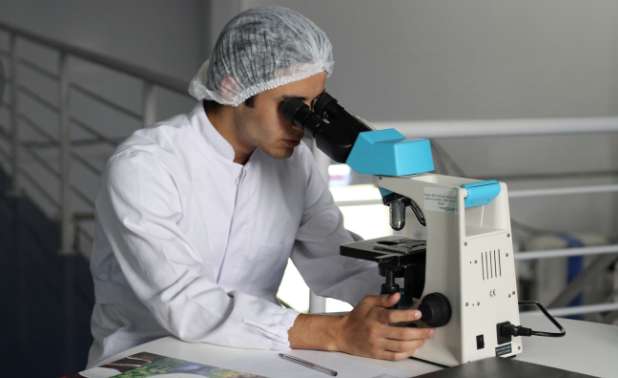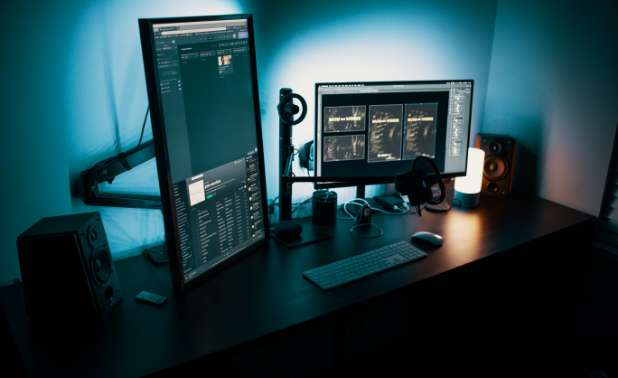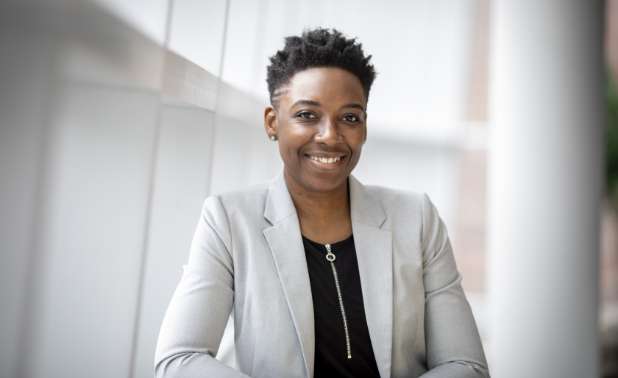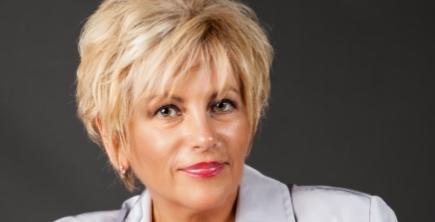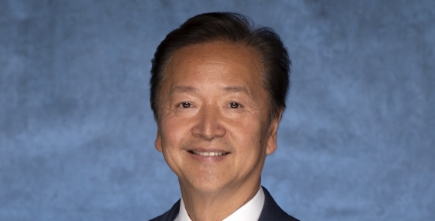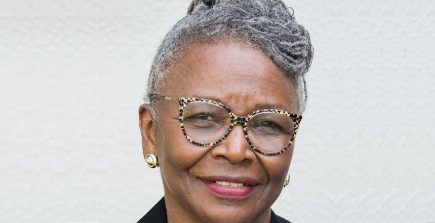Rahdiah Barnes:
Welcome to Pride Global’s first miniseries for But First, People, presented in partnership with the National Minority Supplier Development Council. My name is Rahdiah Barnes, and I’ll be your host. As proud partners of the NMSDC, the entire Pride Global team is thrilled to be bringing you this podcast. We’ll be meeting with other Corporate Plus members and sponsors to learn how being minority-owned companies has shaped their business strategies, the relationship between sponsorship and membership, and much, much more. Join us each month to listen and learn from their stories..
Rahdiah Barnes:
Hello and thank you for joining us on this episode of But First, People’s miniseries with the NMSDC. We have the honor of having Betty Manetta on our episode today. Betty is the founder, president, and CEO of Argent Associates, a tech-centric software development and integration firm. She built a multimillion-dollar company’s legacy by creating innovative supply chain solutions while keeping its commitment to environmental protection. She’s an influential executive and strategic entrepreneur with over 20 years of experience driving transformation and growth for global technology and telecommunications companies and startups. Betty also helps direct the national minority and woman-owned business conversation and policies through her board memberships. Thank you for joining us today, Betty. Thank you so much for joining us. So happy to have you, Betty Manetta from Argent Associates
Betty Manetta:
Thank you, Rahdiah. It’s a pleasure to be here, and thank you for taking time out to talk to me.
Rahdiah Barnes:
Most definitely. It’s my pleasure. So, I want to get to know you. I want to know a little bit about you. You graduated from both Rutgers and Seton Hall, is that correct? So you’re New Jersey.
Betty Manetta:
Yes. Yes, I’m a Jersey girl.
Rahdiah Barnes:
How was your time at those schools?.
Betty Manetta:
Oh, well, I worked full-time, so it was a little bit challenging—going to school part-time at night, raising two children, being married, full-time job. But it was fun. I mean, I had to do it. My parents didn’t have the money to send me to college and I wasn’t the best of students—I liked to party! So I had to do it the old-fashioned way, part-time at night and through tuition refund. So both my bachelor’s and my master’s was paid for by corporate America.
Rahdiah Barnes:
Wonderful. I love that. And listen, we’ve all had our party times, so yes. What I’ve learned and what I was really excited to learn about is that you started out much like me in telecommunications. You started out—
Betty Manetta:
That’s right
Rahdiah Barnes:
—in corporate America. I did as well. And it seemed like you had a great career 20 years, maybe about 20 years that I read, and you decided to be an entrepreneur and go out on your own. How did going from corporate America to having your own business—what was that like, and what prompted you to do that?
Betty Manetta:
Well, as you know, Rahdiah, it wasn’t easy. But what prompted me was, at that time, back in the late ‘90s, a lot of disruption—companies were rightsizing, downsizing, doing all this stuff. And I had learned about supplier diversity. Because I was always international, so that wasn’t something that was really discussed, but once I started doing domestic work, I heard about supplier diversity—that was one of my functions at AT&T—and so I said, “Hey, if I leave, can I get a package, and could I start my own business?” Betty Manetta: So that’s what prompted me to do it. And of course, going from corporate America to being a solopreneur—because it was just me, so I was the person that had to do the bids. I was the person that did… fixed the copier, answered the phones, had to go to events. So yeah, it was a challenge going from being a director, having employees under me, to all of a sudden having to develop a website and do all those things. It was eye-opening to say the least.
Rahdiah Barnes:
My goodness. So, you were a one-woman show?
Betty Manetta:
Yes, yes I was!
Rahdiah Barnes:
Tell us about Argent. Betty Manetta: I have two companies. I’m president and CEO of Argent Associates and chief operating officer of Asociar LLC. We are technology, innovation, R&D-type companies. Argent Associates really develops products, processes. We have several patents all based on technology, and Asociar is our engineering installation test and turn-up of these technologies. I started out with supply chain and logistics, being a value-added reseller, distributor, and then, of course now we still have all that. Now on top of that, we bundle these other key capabilities. We work with corporations, municipalities, universities, bringing sustainable solutions and community-engaging products to support smart and safe buildings and cities. So right now, our focus has been mostly on the buildings and smart cities, also looking at electrification of a lot of these different products and technologies.
Rahdiah Barnes:
Wow, very impressive. I love that. And you are a member of the National Minority Supplier Diversity—Development, sorry! I always say “diversity”—Development Council.
Betty Manetta:
Yes, yes. I am a member of the NMSDC, since I started my company—that was the first thing I did, was get certified through the NMSDC and WeBank.
Rahdiah Barnes:
Wonderful. Yes, we love WeBank as well. Betty Manetta: Yes. Rahdiah Barnes: Have you found that the certification has helped you?
Betty Manetta:
Yes, it does. There’s two sides to it, right? It does open doors that typically, especially in the federal or municipalities and agencies, they really look to have diverse and inclusion—minority, woman-owned businesses. They also want companies that are local, so it does open a door. On the other side, they kind of pigeonhole you when it comes to corporate America. Sometimes you can only go through one door, and that makes it a little bit challenging, because you want to be able to play with the big boys too, right? I want to be able to go to the C-suites, but unfortunately some corporations, and not all, make you go through one path, and that limits your ability to have visibility and network within corporations.
Rahdiah Barnes:
Most definitely. The Corporate Plus program—could you tell me a little bit about the program and how you think that it might have benefited you, being a part of the program?
Betty Manetta:
Yeah, so I think, Rahdiah, one of the things that we have to understand—what was the intent of Corporate Plus? It was really to look at minority-owned businesses, certified minority-owned businesses. I want to say “certified” because we have to be very clear. This is for certified MBEs, as we call them. You look at companies that have been able to scale and grow because, all too often, you get corporate partners that say, "Geez, I can’t find a minority-owned company that can do this or that can do that." So, this was supposed to take the best-in-class or those larger MBEs and be able to, like, if one corporation wanted to, "Hey, do you know a company?" that was the intent of it. So, I think that that hasn’t worked all the way, but it has helped us, because one of the things that it gives me is visibility to other corporate partners and elevates us to work with other certified MBEs.
Betty Manetta:
I think that that was one of the key things, because now we’re working with other certified Corporate Plus MBEs, and we’re starting to create these ecosystems to go after larger businesses. And also, I think we have to remember that since 80% of our minority universe are certified MBEs or Class 1s and 2s, how do we start elevating them? I think our job as Corporate Plus is not only looking for business for ourselves, but also how do we lift up others? So that’s kind of the thing that we’re working on, but it definitely has benefited us, because we are able to work with other certified MBE Corporate Plus as well as other corporations that are outside of our industry.
Rahdiah Barnes:
Yes. Yes, and as you said, lifting up. I think that lifting up part is so important.
Betty Manetta:
Absolutely.
Rahdiah Barnes:
And it’s so beneficial all the way around. One of the benefits to being in the program is that you are assigned a sponsor. Could you tell us who your sponsor is and if they’ve helped, or what you’ve learned from them?
Betty Manetta:
Well, yeah. That’s another story! The problem is that a lot of these companies have either been sold or they did joint ventures. So, my sponsor originally was a company called Lucent, and then Lucent was purchased by Alcatel and that became Alcatel-Lucent. And my sponsor then retired, and the people at Alcatel-Lucent retired, and then that company was sold to Nokia..
Rahdiah Barnes:
Right
Betty Manetta:
So unfortunately, there was nothing that strung along, that said, "Hey, you have these Corporate Plus partners." So, the short answer is, I have no sponsor. And sadly, a lot of companies don’t know about Corporate Plus. I think one of our jobs is to make sure that we have processes in place that allow for Corporate Plus members, when their sponsors either retire or the company is sold, that we have someone that’s following those Corporate Plus that were part of that one company and making sure that they’re aware that this even exists. So yeah, I have no sponsor.
Rahdiah Barnes:
Well, you know what? I think part of the whole overall scope of what we’re trying to do with the Corporate Plus program is to really identify those little issues that have been happening and bring it to the forefront and make resolutions. So I think—
Betty Manetta:
Absolutely. That’s why... Why am I going blank? Lorena, Lorena Valencia, and of course Icy Williams has been a big champion of ours. So I think you can start seeing changes, and yeah, you’re right. That’s why we’re focusing on it, because it does need revamping. And thank God for Ying, because she was an MBE, a certified MBE, and so she understands. And I think she was also Corporate Plus, or the company that she worked for was Corporate Plus, so she understands the challenges that we face. So hopefully we’ll start seeing some movement here.
Rahdiah Barnes:
Okay. And so I wanted to know, since you’re a woman-owned business, you started your business on your own—has being a minority-owned business impacted your business growth in any way?
Betty Manetta:
Yeah. I think that, as many companies, I think it helped me because of the industry that I worked in. So telecommunications, like automotive, like pharma, these are programs that have been around for a long time. They have well-organized supplier diversity programs, and so, coming out of telecom, it helped me to quickly get certified, because I knew the importance of certification, and it opened up a lot of doors. Also because I knew some of the people that were in those corporations to begin with, they knew my capabilities, and so I think it really has helped.
Betty Manetta:
But as I mentioned earlier, sometimes you get pigeonholed when you’re trying to go into some new industries, that you have to go through one door. That one door is supplier diversity. And some supplier diversity managers are great, and others may be a roadblock, if you will. But again, those are the challenges that many companies face. But I think it has helped, bottom line.
Rahdiah Barnes:
Yes. And looking at the success of your business, I would agree.
Betty Manetta:
Yeah, thank you.
Rahdiah Barnes:
Are there any supplier diversity initiatives or impacts that your business is currently doing or is planning on doing?
Betty Manetta:
Oh, yeah. So to me, that’s big. As a Hispanic woman-owned business, I sit on the board of the U.S. Hispanic Chamber of Commerce. I belong to WeBank, as I mentioned earlier, U.S. NMSDC. So, I think that we have to remember that the communities that we serve are very important. 80%, or, say, 85% of my employees, if not more, are all minority employees. I want to walk the talk. And what we did is we developed our own technicians. These were young kids out of high school, were not college-bound, where they worked in the warehouse, and then we took them and trained them to be RF engineers, technicians. They’re some of the best.
Rahdiah Barnes:
Love it. Betty Manetta: To me, that’s important, because we are creating our workforce of the future, and we’re doing it ourselves, and we’re giving them an opportunity. Some of them already bought homes, sending their kids to college. It’s so important to do that. Buying brand-new cars, right? So, to me, that’s the impact I want to make. We are seeing the long-term community impact, and that’s why it’s all about the community, really. So, when you talk about that, to me, that’s the way to go. And I’m proud that Argent and Asociar are both a black- and brown-owned company, that we have a workforce that looks and acts like us.
Rahdiah Barnes:
I absolutely love that. You are talking the talk and walking the walk.
Betty Manetta:
Yeah.
Rahdiah Barnes:
And really, through my experience, a lot of times it doesn’t match up. The talk is there, but the walk is not there. So, I really, really appreciate the fact that you... And you know that that really will impact the community, that will impact generations. So, the effort that you’re putting forward, I really, really do admire. Thank you so much for that.
Betty Manetta:
Oh, you’re welcome.
Rahdiah Barnes:
Now, can you tell me, do you have any tips for minority businesses who are just starting out?
Betty Manetta:
Yes. I think the most important thing is know your business. Know the industry that you’re walking into. Think of it as a business and not a hobby. Think excellent, whatever you do. And make sure that it is profitable, because a lot of times people do something that they love, but they can’t make money and they can’t grow their businesses. The only way you can move forward and grow is to really have a passion and understand the industry that you’re going into.
Betty Manetta:
I would also tell them you don’t have to do this alone. As part of a network like the NMSDC and WeBank and others, you have the opportunity to get to know other certified minority-owned business. Today, we just had a call with a cohort, or consortium of companies. They’re all diverse, minority-owned companies, and we’re going to go after some large opportunities because we keep talking about it, but we never do it. So that’s another suggestion I would say. You don’t have to do it alone.
Betty Manetta:
And again, one of the things... I’m also part of the Kellogg alumni, the AMEP, and I think together, Corporate Plus and Kellogg working together really can make a big difference to create more Class 3s and 4s, because I think we have over 827 Kellogg graduates. So really, it’s a great opportunity for NMSDC to look at both and say, okay, how do we start branding and bringing these companies together to really create, make a difference in our communities?
Rahdiah Barnes:
Excellent. Have you had any challenges? A lot of times, people will say they cannot find diverse suppliers. I hear that a lot. Have you had challenges finding diverse suppliers for your business? Betty Manetta: No, I know how to find them. I think the challenge is making sure that, ethically, we all walk and talk the same, because I’ve had some dealings with some partners that didn’t bode very well. You want to make sure that finding and vetting them and—because at the end of the day, it’s about the morale of the company, your moral compass, making sure that you all believe and do the same thing. So, I think that’s pretty important. But corporations will always hit the “easy” button, and we always say that, “hit the easy button.” They know companies that have done this. They’re around for forever. They’re in the billion dollars. It’s easy to go to them, because you know they can do it. I think corporations as well as agencies need to kind of step out and say, okay, how do I lift up others? That to me is a challenge that we see in the industry.
Rahdiah Barnes:
Mmhmm. Most definitely. And there’s that lifting part again, very important.
Betty Manetta:
Yes.
Rahdiah Barnes:
Why do you think it’s important to recognize the contributions of minority business owners, entrepreneurs?
Betty Manetta:
Because the growth of these companies are going to be the future of our country. Think about the issues we’ve had in the past. The only way to get the communities out of poverty and get communities out of some of these issues is really to start creating wealth within these underserved communities. So the reason why they have to do it and why they should do it is because you have diversity of thought, diversity of achievements. The future is going to be the majority... The minorities are going to be the majorities at one time, right? Think about the Hispanic community, how fast it’s growing, and the number of Hispanics and African-Americans that are growing their businesses. So yeah, I think it’s important to take rise and make sure that we feed, because we are the feeder pool for other corporations. As we are training them, as a matter of fact, several of my employees were picked up from some of these large corporations after I’ve trained them. And so, we are the feeder pool of the future. I think it’s important for everyone to recognize that.
Rahdiah Barnes:
Yes, love the “feeder pool to the future.” I love that. As we start to wrap up, I wanted to ask if there’s any lessons that you would like to share with our leaders? Any advice, any lessons, maybe your personal motto? Anything that you would like to leave us with today.
Betty Manetta:
Yeah, I think that the most important thing is be your authentic self. Be kind. Work cohesively across various lines. I think all too often we stay focused in just our business, but think of... You know, you got to be profitable. That’s a given. You can’t hire people. You can’t grow your business if you’re not profitable. So profitability is key. Make sure that you network, because the networking within all these organizations is key, because you’ll never know. You can find some nuggets out there. And just stay focused and make sure you understand your business. And the one thing that I’ve always said is “Say what you’re going to do and do it.” So that’s my motto.
Rahdiah Barnes:
“Say what you’re going to do and do it.” I think that is great. I so appreciate you spending a little bit of time with us today, Betty. I know you are so busy. You seem like you have a lot going on. You’re over there doing a lot in Jersey, and we appreciate you taking your time.
Betty Manetta:
Thak you.
Rahdiah Barnes:
I look forward to meeting you one day in perso-—
Betty Manetta:
Absolutely
Rahdiah Barnes:
Absolutely. Rahdiah Barnes: —and continue the great work. I just really admire people who really impact the community, and I see a lot of the work that you’re doing is very impactful. So, thank you so much. Thank you for joining us.
Rahdiah Barnes:
Thank you, Betty, for sharing more about your story today, and thank you to our viewers for joining us. To learn more about Pride Global, please check out prideglobal.com. And for the NMSDC, please go to nmsdc.org. If you have any questions for the NMSDC or Pride Global, please email us at butfirstpeople@prideglobal.com. Also, don’t forget to like, share, rate, and subscribe to our podcast. Thanks again, and see you next time.


